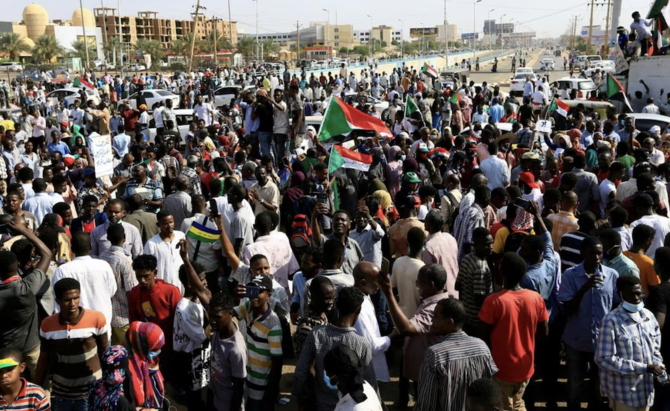
- ARAB NEWS
- 15 Jul 2025

After the war that ruined Yemen and is still ruining it today, after the conflict that has ravaged Ethiopia in recent years, a new humanitarian tragedy is looming in Sudan. These three almost neighboring countries, though very different from each other, have in common that they are deeply divided for historical, ethnic or religious reasons — sometimes all three.
Sudan, which became independent in 1956 after lengthy Egyptian-British rule, has experienced numerous crises: a long and cruel dictatorship under the tyranny of Omar Bashir after a military coup in 1989, an endless civil war in Darfur, the secession of the southern provinces, before the regime collapsed in 2019 under pressure from the army. Since April 15 the country has once again fallen into chaos because rival generals are fighting for power, spreading panic and hardship among the population.
However, the news that first came out of Khartoum, the capital, was the general closure of embassies and the accelerated flight of foreign nationals. The international media were all over it. The images that were broadcast were of lines of vehicles rushing out of the capital toward Egypt. States with the means to do so have organized, with the assistance of the UN, the evacuation of their nationals, negotiating with the military forces on the ground for facilities and security guarantees. This is what the US, UK and Italy, among others, have done.
As for France, it has chartered air assets to organise flights to Djibouti to evacuate its diplomats and nationals, about 400 people. All this is understandable and perfectly legitimate, but one can imagine what the unfortunate Sudanese people, abandoned in the midst of a catastrophe, may think. The flight of these ambassadors is lacking a little grace.
The fact is that this conflict is a matter between the regular army, led by Gen. Abdel Fattah Al-Burhan, and the paramilitary Rapid Support Forces led by Gen. Mohamed Hamdan Dagalo, known as Hemedti. After the fall of Bashir and the failure of attempts to establish a government that included both civilian and military figures, the two generals joined forces in 2021 to remove civilian notables and take power together, with Hemedti becoming the number two in the regime led by Burhan. So this is an intra-military affair, but as always it is the civilian population who will pay a high price.
This is an intra-military affair, but as always it is the civilian population who will pay a high price.
Herve de Charette
This obviously could not last. Hemedti broke the agreement and started hostilities. The confrontation will therefore be violent and will be seen through to the end. We should expect the worst. Already, the damage is considerable and the victims number in the thousands.
Sudan is a poor country where almost a third of the 45 million inhabitants suffer from hunger. It needs international humanitarian aid, not a civil war between armies, Sudanese against Sudanese, which is likely to be cruel and devastating. The flight of foreign residents shows what the international community expects.
It is feared that the conflict will become international. In 2021, Egypt and Russia supported the generals’ putsch, while the West condemned it. This time the situation is different. It seems that Russia is behind the Hemedti rebellion. There are even whispers that the Wagner militia, already present in Darfur, could intervene in Khartoum in support of Hemedti. On the contrary, the West should join Egypt in supporting the head of the army, Gen. Burhan, who has a certain legitimacy. What is likely to be decisive is the attitude of the Gulf states, which have some influence in Sudan and could contribute to an armistice.
So this is not the time to leave Khartoum. Neither the US, nor Europe, nor the Arab countries, nor of course the African Union, have any interest in allowing a new devastating war to take hold in the Horn of Africa, one that is likely to turn out as badly as the two previous ones in Yemen and Ethiopia. It is therefore urgent to do everything possible to prevent it from becoming entrenched in this unfortunate country.